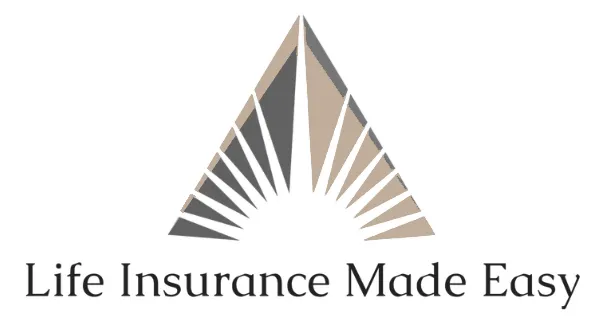
What is Term Life Insurance and Why Do You Need It?
Term life insurance is key in financial planning. It helps protect your loved ones' financial future. This article will explain term life insurance, its benefits, and why it's important for your financial plan.
Term life insurance is simple and affordable. It covers you for a set time, usually 1 to 30 years. Unlike whole life insurance, it's meant for critical life stages like raising a family or paying off a mortgage.

The main goal of term life insurance is to protect your family financially if you pass away. It gives a death benefit to help with income replacement, debt, and securing your family's future. This lets them focus on grieving without financial worries.
Term life insurance is great for any stage of life. It's affordable and flexible, meeting your changing financial needs. Knowing about term life insurance helps you choose the right option for your family's peace of mind.
Key Takeaways
Term life insurance provides temporary, affordable coverage to protect your family's financial future
It offers a lump-sum death benefit to replace your income and cover outstanding debts in the event of your passing
Term life insurance is a versatile solution that can be tailored to your specific needs and life stage
Investing in term life insurance is a responsible and proactive way to safeguard your loved ones' financial security
Understanding the basics of term life insurance can help you make an informed decision for your family's protection
Introduction to Term Life Insurance
Term life insurance is a key type of life insurance. It covers you for a set time, called the "term." If you pass away during this time, your loved ones get a death benefit. This helps secure your family's financial future at a lower cost.
Definition and Basics
Term life insurance is a straightforward yet powerful tool. It protects your family by giving them a sum of money if you die. This money helps with big expenses like mortgages and childcare. Plus, term life insurance is cheaper than other types, making it easier for many to get.
Importance of Life Insurance
Financial protection for your loved ones in case of your passing
Helps ensure your family's continued financial security and stability
Provides income replacement for your dependents
Facilitates estate planning and asset transfer to your beneficiaries
Offers peace of mind and a sense of financial preparedness
Life insurance is vital for a solid financial plan. It gives your family the money they need to keep living well, even without you. Term life insurance is especially good because it's affordable. It ensures your family stays safe and secure, even when you're not there.
"Life insurance is not just about protecting your family's financial future – it's about providing them with the means to move forward, even in the face of the unthinkable."
How Term Life Insurance Works
Term life insurance is easy and affordable to protect your loved ones. It covers you for a set time, usually 10 to 20 years. You pay a fixed premium each month. If you pass away during this time, your family gets a death benefit from the insurance company.
The death benefit helps pay for funeral costs, debts, and supports your family. It's very helpful during hard times, ensuring your family is cared for.
After the policy term ends, you can renew or even switch to permanent life insurance. This lets you change your coverage as your needs change.
Term life insurance costs less than permanent life insurance. The premium payments depend on the policy term and death benefits you want.
In short, term life insurance is a simple and affordable way to protect your family. It ensures they are taken care of if something unexpected happens.
"Term life insurance is the simplest and most cost-effective way to provide financial protection for your family."
Types of Term Life Insurance Policies
There are two main types of term life insurance: level term and decreasing term. Knowing the differences helps you pick the right coverage for your needs and budget.
Level Term Life Insurance
Level term life insurance keeps the death benefit the same for the policy's term. Your premiums don't change, making it easier to plan. This stability is great for budgeting.
Decreasing Term Life Insurance
Decreasing term life insurance has a death benefit that goes down over time. It matches the balance of a mortgage or loan. This means lower premiums as the policy term goes on.
Deciding between level term life insurance and decreasing term life insurance depends on your needs. Look at the coverage amounts and policy term to find the best fit for you.
"The right term life insurance policy can provide valuable financial protection for your loved ones, no matter which type of coverage you choose."
Factors Affecting Term Life Insurance Premiums
Several factors influence the cost of term life insurance premiums. These include the policyholder's age and health, as well as the coverage amount and policy term length. Knowing these factors is key to choosing the right term life insurance policy.
Age and Health
Younger and healthier people usually pay less for term life insurance. Insurance companies look at the policyholder's risk based on age and health. The younger and healthier you are, the lower the risk, making premiums more affordable.
Coverage Amount and Term Length
The coverage amount and policy term length also affect premium costs. Higher coverage and longer terms mean higher premiums. Insurance companies use these factors to set premiums based on the individual's risk.
Understanding these premium factors helps individuals make better choices when buying term life insurance. This ensures they get the right coverage at a price they can manage.
"The cost of term life insurance is mainly based on the policyholder's age, health, coverage amount, and policy term length. Insurance providers carefully assess these factors during the underwriting process."
Benefits of Term Life Insurance
Term life insurance is a great financial tool. It's affordable compared to other types of insurance. This makes it easy for people and families to get the coverage they need.
Its main job is to replace lost income. It helps cover important costs for your family if you're not there. The death benefit ensures your family's financial security and helps them avoid financial stress.
Term life insurance is also flexible. You can change the coverage as your life changes. This makes it a good choice for people with changing needs.
Finally, term life insurance has tax advantages. The death benefit is usually tax-free. This adds more protection for your loved ones.
BenefitDescriptionAffordable CoverageTerm life insurance premiums are generally lower than permanent life insurance policies, making it a more budget-friendly option.Financial ProtectionThe death benefit can help replace lost income and cover essential expenses for your loved ones, ensuring their financial security.Flexible CoverageTerm life insurance policies allow you to adjust the coverage as your needs change, providing adaptable protection.Tax AdvantagesThe death benefit from a term life insurance policy is typically tax-free, offering additional financial benefits.
Knowing the benefits of term life insurance helps you choose the right coverage. It's important for your family's financial future.
Term Life Insurance vs. Whole Life Insurance
Choosing between term life insurance and whole life insurance is a big decision. It's important to know the differences to pick the right one for you. This choice should match your financial goals and long-term plans.
Coverage Differences
Term life insurance covers you for a set time, like 1 to 30 years. Whole life insurance, on the other hand, covers you for life. It guarantees a death benefit as long as you keep the policy.
Premium Differences
Term life insurance costs less than whole life insurance. This is because term life doesn't build cash value or have an investment part. Its cost is just for the risk of dying during the term.
Investment Component and Policy Duration
Whole life insurance has a cash value that grows over time. You can use this cash for loans or withdrawals. Term life insurance doesn't have this feature and ends when the term is up.
Choosing between term life insurance vs. whole life insurance depends on your financial needs. Term life might be better for temporary coverage or if you're on a tight budget. Whole life is good for lifelong coverage and building cash value.
"The decision between term and whole life insurance is a personal one, based on your unique financial circumstances and long-term goals." - Financial Advisor
When looking at life insurance, think about the coverage, cost, investment part, and how long it lasts. This will help you choose the best option for your financial planning.
When to Consider Term Life Insurance
Term life insurance is important at many stages of life. It's especially key during life events and financial milestones. Getting married, starting a family, or taking on big debts like mortgages or student loans are times to think about it. It offers income protection and financial security for your loved ones.
Life Events and Milestones
Getting married: It's a great time to buy term life insurance. It ensures your spouse is financially safe if you pass away.
Having children: A new baby brings joy and more financial duties. Term life insurance helps secure your family's future.
Buying a home: Getting a mortgage is a big step. Term life insurance helps your family keep their home if you're not there.
Taking on student loans: It's vital to protect your income to repay loans. Term life insurance offers that security.
Estate planning: Term life insurance is key in planning your estate. It ensures your loved ones are cared for after you're gone.
Aligning term life insurance with life events and financial milestones gives you peace of mind. You'll know your loved ones are financially safe, even if you're not there.
"Term life insurance is a crucial safety net for individuals and families during important life stages, providing essential income protection and financial security."
How to Choose the Right Term Life Insurance Policy
Choosing the right term life insurance policy is important. You need to think about your needs and compare different options. Start by looking at your financial situation. This includes your income, debts, and dependents.
This will help you figure out how much coverage you need. And how long you need it for. This way, your loved ones will be taken care of.
Assessing Your Needs
Think about your insurance needs based on your life and finances. Consider your age, health, and any health issues. These can affect your premiums.
Figure out how much coverage you need. This should cover your debts and provide for your family's future. This way, you can ensure your family's financial security.
Comparing Quotes and Providers
After knowing what you need, start comparing quotes from different providers. Don't just look at the cost. Check the company's financial strength, customer service, and policy features.
This will help you find the best policy for you. It should offer good value and meet your specific needs.
FAQ
What is term life insurance and why do you need it?
Term life insurance covers you for a set time, like 10 or 20 years. If you die during this time, your loved ones get a death benefit. This helps them keep their lifestyle and pay bills without you.
How does term life insurance work?
You pay a fixed premium for a set time. If you die during this time, your family gets a death benefit. This money helps with funeral costs, debts, and supports your family.
After the term ends, you can renew or convert it to permanent insurance.
What are the different types of term life insurance policies?
There are two main types: level term and decreasing term. Level term has a fixed death benefit and premiums. Decreasing term's death benefit goes down, like a mortgage, with lower premiums.
What factors affect term life insurance premiums?
Premiums depend on your age, health, coverage amount, and policy term. Young and healthy people pay less. Higher coverage and longer terms cost more.
What are the benefits of term life insurance?
Term life insurance is affordable and offers a death benefit. This helps your family financially if you pass away. It also lets you adjust coverage as your needs change.
The death benefit is tax-free, adding to its value.
How does term life insurance differ from whole life insurance?
Term life covers you for a set time, while whole life covers you forever. Term is cheaper but lacks investment growth. Whole life is pricier but builds cash value and guarantees a death benefit.
When is the best time to consider term life insurance?
Consider it when you get married, have kids, buy a home, or take on big debt. It ensures your family's financial security. It's also key in estate planning to protect your loved ones.
How do I choose the right term life insurance policy?
Evaluate your income, debts, and dependents to find the right coverage. Compare quotes from different insurers. Look at premium costs, company strength, and policy features.
By considering your needs and comparing options, you can find the best policy for your family.




